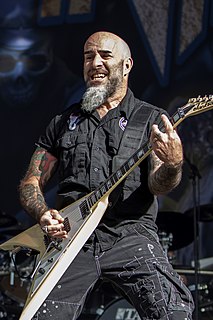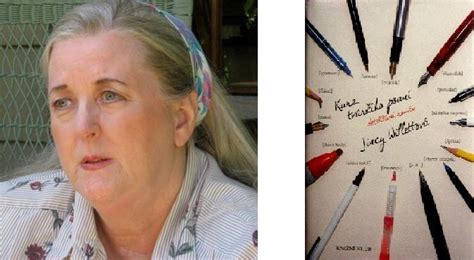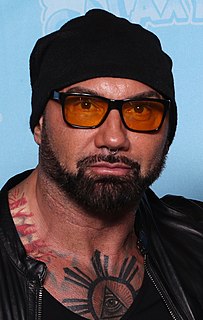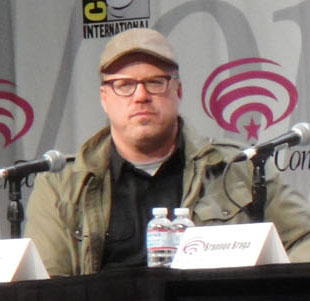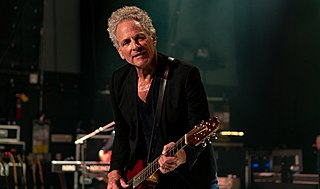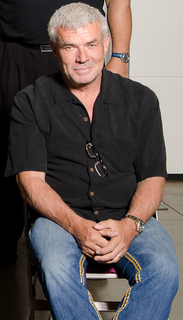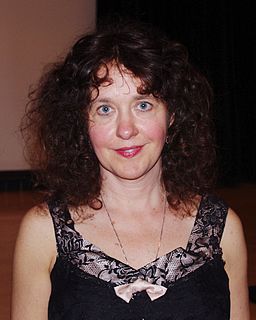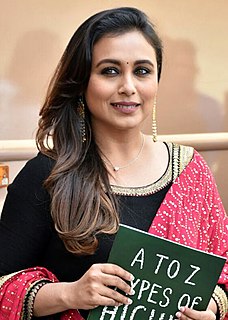Top 1200 Writing Dialogue Quotes & Sayings - Page 4
Explore popular Writing Dialogue quotes.
Last updated on April 20, 2025.
I'm an actor, and, beyond that, the thing I do most compulsively is writing. So I come at it very much from this sense of character. I get interested in people. And I feel confident in my capacity to absorb and manifest the characteristics of people. I have a real auditory hang-up for dialogue; re-creating the way people talk really is an addiction in my brain.
Even the way Mamet describes silences within his plays is different. There are pauses; there are pauses within parentheses; there are pauses before dialogue; there are pauses in the spaces between the dialogue - there's this extraordinary vocabulary of silence which is all there on the page, mapped out.
You honor your writing space by recovering, if you are an addict. You honor your writing space by becoming an anxiety expert, a real pro at mindfulness and personal calming. You honor your writing space by affirming that you matter, that your writing life matters, and that your current writing project matters. You honor your writing space by entering it with this mantra: “I am ready to work.” You enter, grow quiet, and vanish into your writing.
Do remember, though, that unless you're a playwright, the result [dialogue] isn't what you want; it's only an element of what you want. Actors embody and re-create the words of drama. In fiction, a tremendous amount of story and character may be given through the dialogue, but the story-world and its people have to be created by the storyteller. If there's nothing in it but disembodied voices, too much is missing.
Dialogue is generally the worst choice for exposition. When you're writing lines you need to focus on the way people actually talk. And when we talk to each other we never actually explain our terms. We don't say 'Sweetheart, would you pass me the sugar bowl, which we picked up for a song at that antique stall in Munich.'
If you are making money writing, you are doing great. If you can support yourself writing, you are a success. I don't care if you're writing textbooks or Pulitzer Prize-winning articles for weighty publications of world renown: If you're writing and it's paying the bills, consider yourself a successful writer.
I believe very much in a dialogue between buildings - I believe it's always been there. I think buildings have different identities and live very well next to each other. We always have the shock of the new, and that's fine. The renaissance style is totally different from the medieval, and they have a dialogue across time.
In terms of my peer group, nobody's parents were dying of old age. There was no dialogue to have among friends. I had that experience, and then 10 years later, I started thinking about writing about it. It's obviously an indelible thing when that happens, and I wasn't looking for material at the time or anything; it just started becoming relevant to me.
What must novel dialogue . . . really be and do? It must be pointed, intentional, relevant. It must crystallize situation. It must express character. It must advance plot. During dialogue, the characters confront one another. The confrontation is in itself an occasion. Each one of these occasions, throughout the novel, is unique.
One can feel the immense joy of Amy Hill Hearth's engagement in her first novel. It radiates through every scene and through every page. Sometimes, an exceptional writer finds an exceptional premise, and the result is a truly exceptional book. Such is the case with Miss Dreamsville...The writing is brilliant, especially the dialogue through which the characters are defined.
The pressure is always stepping on stage with actors who are just so well-established. It's a scary thing. I haven't been around the block that many times, especially not on big projects. Dialogue makes things easier. When you start bouncing dialogue off of other actors, it becomes comfortable; it becomes conversational.
Taking a comic strip character is very hard to write. Because comics are meant to work in one page, to work in frames with minimalistic dialogue. And a lot of it is left to the imagination of the reader. To do that in film, you've got to be a little more explanatory. And that requires a good screenplay and good dialogue.
One decision I made in writing 'Henry and Clara' was that I would keep Lincoln's appearances and any dialogue by him to an absolute minimum, because I think readers don't quite believe it when novelists have Lincoln walking around and saying things. They just know they're in the presence of stage machinery.
No, my favorite scene was Brienne finding Arya and The Hound. I thought that the writing and the dialogue and the confusion that spirals into the fight was such a cool scene. I knew I was gonna film it in Iceland and I did a lot of - I really scouted and climbed around Iceland to find those locations and I just couldn't wait to do that.
So long as human history continues, we will face the perennial challenge of realizing, maintaining and strengthening peace through dialogue, of making dialogue the sure and certain path to peace. We must uphold and proclaim this conviction without cease, whatever coldly knowing smiles or cynical critiques may greet us.
It's something that's difficult to explain but I think all writers work this way to some extent, whether we're aware of it or not. For me, writing has little to do with thinking. I don't want to control the narrative. I listen to the rhythm of the words and dialogue and try to give the characters the space in which to say and do what they want without intervening too much.
So, I think that for the authorities to say now that calling for sanctions will prevent dialogue is a ploy to stop us from supporting sanctions. It has to be the other way around: dialogue first, then we stop our call for sanctions, because sanctions make people understand that you cannot exercise repression and at the same time expect international support.
There are certain things that I will do viscerally to affect people emotionally, with speed changes and sound, and various other things. Sure there are links; the same kind of sensibilities went into it and I worked on writing that script as well so there was an emphasis on a minimalisation of dialogue as far as possible, to focus on the visual and to put it in another language, of course.
Professional wrestling... is no different than a Broadway play except that in a Broadway play, actors are using dialogue to tell a story and establish their characters, while in WWE, they're using a physical dialogue to tell their story and build their characters. That's a very unique art; it really is.
Very, that show is crazy. It was like doing finals every week. It was interesting. I really learned a lot. The dialogue is so technical. I was so impressed watching the other actors and how they managed, so I studied them. And I was blown away thinking: "How do they do that? How do they put that extra spin on the complicated dialogue to make it interesting?
We have been making constant efforts, all the time, to start dialogue with the SLORC, but you know it takes two. We don't want a monologue. We would like a substantive political dialogue among the SLORC, political leaders including myself, and leaders of ethnic groups-exactly as stipulated in the U.N. General Assembly resolution on Burma.
I don't think all comedy should be mindless. Have something that's thoughtful. Maybe some things are tongue-in-cheek; maybe some things are very direct. I like that people have to think about things. That excites me. Because if you say certain things, it starts a dialogue. Even if you disagree, it's still a dialogue.
This involves more than I can discuss here, but do it. Read the writers of great prose dialogue-people like Robert Stone and Joan Didion. Compression, saying as little as possible, making everything carry much more than is actually said. Conflict. Dialogue as part of an ongoing world, not just voices in a dark room. Never say the obvious. Skip the meet and greet.
I have a hard time writing. Most writers have a hard time writing. I have a harder time than most because I'm lazier than most. [...] The other problem I have is fear of writing. The act of writing puts you in confrontation with yourself, which is why I think writers assiduously avoid writing. [...] Not writing is more of a psychological problem than a writing problem. All the time I'm not writing I feel like a criminal. [...] It's horrible to feel felonious every second of the day. Especially when it goes on for years. It's much more relaxing actually to work.
Writing is really just a matter of writing a lot, writing consistently and having faith that you'll continue to get better and better. Sometimes, people think that if they don't display great talent and have some success right away, they won't succeed. But writing is about struggling through and learning and finding out what it is about writing itself that you really love.
Be critical of but not brutal with your writing. If something isn't essential, get rid of it. Remember that good dialogue can serve a whole passel of purposes in your novel, and to overlook one of them is to overlook one of the tools of the craft. Like hitting a nail with a screwdriver, if you know what I mean.
The craft of writing is all the stuff that you can learn through school; go to workshops and read books. Learn characterization, plot and dialogue and pacing and word choice and point of view. Then there's also the art of it which is sort of the unknown, the inspiration, the stuff that is noncerebral.
Sometimes I find it tiresome to write actions and describe the scene in a very intricate way so that every crew member understands where we are going - that I can find a little bit long and tiresome. But dialogue is just all my life. There's no way I could ever be challenged, not challenged, but I'm always so happy to write dialogue.
Just as it wouldn't be right to only to have an economic dialogue with China, equally you shouldn't restrict your dialogue solely to issues around, say, human rights. You can raise all those issues, and that is what reflects a mature discussion. So I don't think essentially we have to choose between being partners in China's economic development and being proud defenders of British values.
I am certain that I have been here as I am now a thousand times before, and I hope to return a thousand times... Man is a dialogue between nature and God. On other planets this dialogue will doubtless be of a higher and profounder character. What is lacking is Self-Knowledge. After that the rest will follow.
I often need physical gesture to balance dialogue. If I write in public, every time I need to know what a character is doing with his hand or foot, I can look up and study people and find compelling gestures that I can harvest. Writing in public gives you that access to a junkyard of details all around you.
That's one thing brands are understanding is, I'm the blogger who's not writing about fashion. I'm not writing about beauty. I'm not writing about gossip. I'm not writing about politics. I'm writing about all of that. I'm the person they can come to if they just want to reach people who care and have their fingers on pop culture.
Writing has always been a serious business for me. I felt it was a moral obligation. A major concern of the time was the absence of the African voice. Being part of that dialogue meant not only sitting at the table but effectively telling the African story from an African perspective - in full earshot of the world.
We all have an ongoing narrative inside our heads, the narrative that is spoken aloud if a friend asks a question. That narrative feels deeply natural to me. We also hang on to scraps of dialogue. Our memories don’t usually serve us up whole scenes complete with dialogue. So I suppose I’m saying that I like to work from what a character is likely to remember, from a more interior place.








